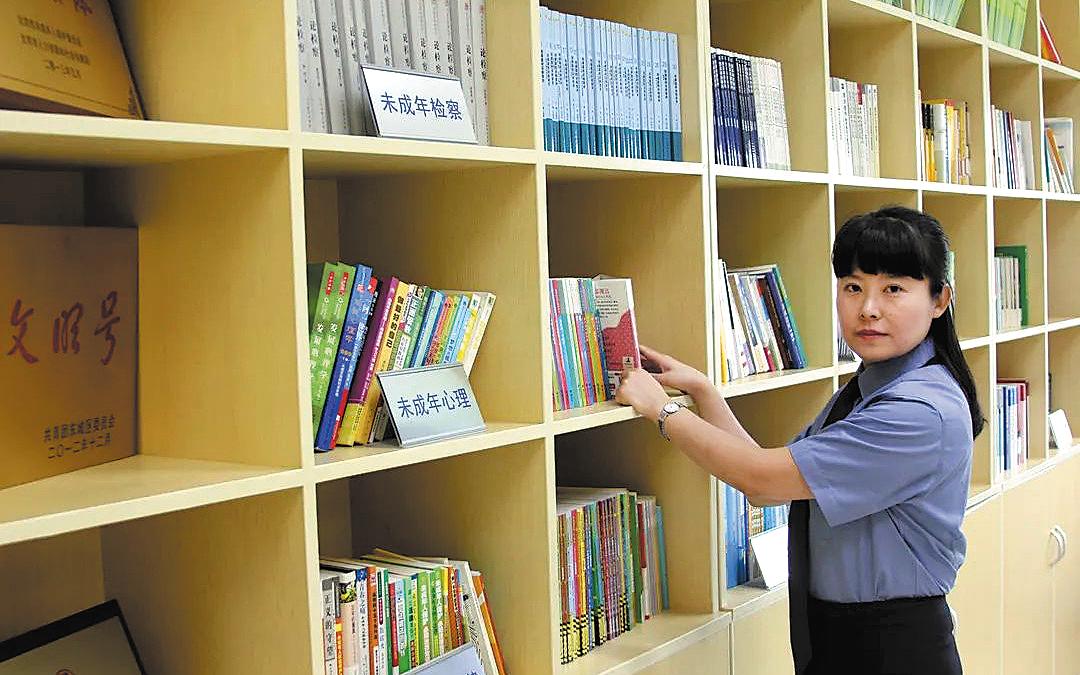
Liu Chaoying
Liu Chaoying, a prosecutor who specializes in handling juvenile cases at Beijing Dongcheng District People's Procuratorate, encapsulates her job in three words: passion, perseverance and solidarity.
In her view, the method for solving juvenile crimes differs significantly from fighting ordinary offenses, because it demands judicial workers be more patient and pay extra care.
"While figuring out why minor perpetrators commit crimes by conducting sufficient surveys on their backgrounds and living environment, it's also necessary for us to gain their trust and learn about what they need," she said. "Only in this way can we truly make them realize their mistakes and provide them with assistance, education and rehabilitation in a more targeted way."
One of more than 600 cases she has resolved over the past few years, the story of Ding Ding (not his real name), who was sentenced to nine months in prison for theft in 2016 when he was 17, impressed her the most.
"When I dealt with his case, he told me he stole money because he was hungry and had no skills to earn a living, so his post-prison future was my biggest concern," Liu recalled. "In other words, finding a job to live a life was what the young man urgently needed at that time. Otherwise, he might commit crimes again."
She tried to reach out to the parents of Ding Ding, a native of the Inner Mongolia autonomous region, to help him get back to his family, but he had had no contact with his mother for a long time, while his father who had allegedly often assaulted the boy, had died in an accident in 2013.
"After knowing that, I felt sorry for the teenager, and I was also a little bit anxious, as I promised him I would get him a job opportunity after his release," she said. "He trusted me and shared his need with me. I didn't want to let him down."
Thanks to her constant efforts, a Beijing grocery distribution center agreed to employ Ding Ding. On the day when he was freed, Liu and her colleague went to the prison to pick him up, telling him of the employment and buying him a coat as a gift.
What made Liu happy was that after doing these things for the juvenile, the trust between them deepened. He often sent her text messages, informing her of what he learned at work and sharing his daily life.
Now, Ding Ding works in Shenzhen, a manufacturing hub in Guangdong province, but he has kept in touch with Liu. At the end of last year, Liu received a WeChat message from him, asking how she was and informing her about his progress at work.
In another case, after learning a migrant worker who died in a traffic accident in Beijing had three children, she visited Gansu province to learn about their needs, establishing a team including herself and local departments in civil affairs, education and women's federation to jointly provide care, financial aid and legal assistance for them.
"The children will grow up healthy when they feel cared for and valued," she added. "Their basic lives will be guaranteed in this way, and their mother will also devote herself to work in Beijing."
Expressing her great thanks for her own family, she said that her husband and 16-year-old son are supportive of her work, which takes more time and energy. "It's the support that gives me the courage and motivation to persevere when I encounter difficulties in handling a case."